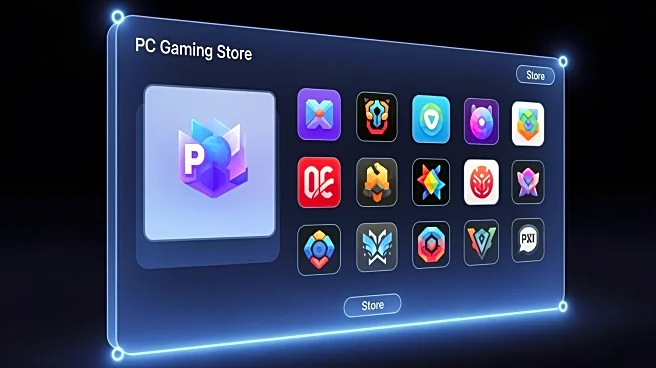What's Happening?
A recent survey conducted by Atomik Research, titled 'The State of PC Game Distribution,' reveals that a significant majority of developers perceive Steam as having a monopoly on the PC gaming market.
The survey, which included responses from 306 industry executives in the United States and the United Kingdom, found that 72% of respondents believe Steam dominates the market. Despite this perception, Steam remains a crucial platform for developers, with over 75% of their revenue coming from Steam sales. The survey also highlighted that while 48% of companies distribute through the Epic Game Store and the Xbox PC Games store, only a small percentage use platforms like GOG and Itch.io. Interestingly, 80% of respondents plan to explore alternative sales channels alongside Steam in the next five years.
Why It's Important?
The findings of this survey underscore the complex dynamics within the PC gaming industry, where Steam's dominance is both a boon and a challenge for developers. On one hand, Steam's extensive reach and user base provide significant revenue opportunities, especially for smaller developers. On the other hand, the perception of a monopoly raises concerns about market competition and the potential stifling of innovation. The industry's reliance on Steam could limit the growth of alternative platforms, affecting the diversity of distribution channels available to developers. This situation highlights the need for a balanced ecosystem that encourages competition and innovation while ensuring fair access to market opportunities.
What's Next?
As developers express intentions to diversify their distribution strategies, the industry may witness a gradual shift towards a more competitive landscape. The exploration of alternative platforms could lead to increased opportunities for new entrants and existing competitors like the Epic Game Store and Xbox PC Games store. This shift may also prompt Steam to innovate and adapt its offerings to maintain its market position. Stakeholders, including developers and platform providers, will likely engage in discussions about fair practices and the future of digital distribution in the gaming industry.











